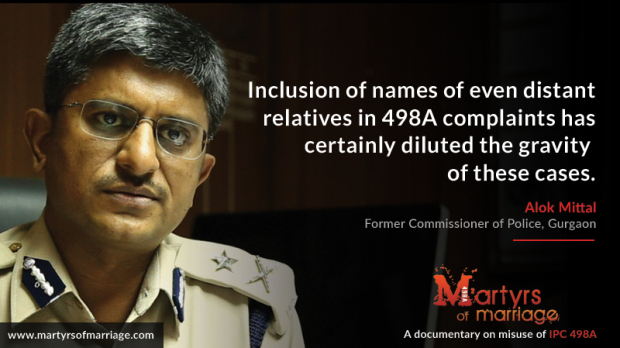Latest News
Laws before and after arrest in India.

Laws before and after arrest in India.
Introduction:
The case was filed between ARNESH KUMAR VERSUS STATE OF BIHAR & ANR. This case was imposed to check the powers of the police before arrest. Along with section 498A deals with dowry cases.
Facts of the case:
In this case there was an allegation made by the wife on her husband i.e. the Appellant in this case. The allegation was as such regarding the demand of Rs 8 lakhs, a maruti car, an air conditioner, television set etc. Such demand was made by her mother in law and by her father in law. The wife told all this to her husband. After it came to appellant notice the appellant supported his parents instead of his wife and threatened to marry another woman. The allegations were further made when she was unable to fulfilled the demand was dowry she was driven out of her matrimonial home.
The appellant denied all the allegations made on him. The appellant then preferred to file an anticipatory bail. This bail was reacted by the learned sessions judge and after that high court as well. The Indian penal code has introduced a section 498-A. As per this section the object is to protect women from the danger of harassment at the hands of husband and his relatives. This is the way to get husband and his relatives arrested in this provision.
The power to arrest has been emphasised by the court but still not have reached the desired result. The contribution of such power fails the magistery to check on it. This power to arrest can be a source of police corruption. This attitude has led to the number of cases in recent years. The police are following the path first to arrest and then to proceed with the rest. While exercising the power to arrest there need to maintain the balance between the liberty of the individual and the order of the society. It is agreed that the police officers have the power to arrest. Such power will be considered as one thing but the justification of such power should be taken into consideration. Arrest in cognizable and non bailable Offences the police must justify their reasons for the arrest.
Further an arrest cannot be made without a reasonable satisfaction which I reached after some investigation. Such would state the genuineness of the allegation. Even after all this there is no improvement found by the legislature. The enactment of section 41 of Criminal procedure code came in the present form.
In his appeal the punishment which is provided will be imprisonment that may extend to 7 years and fine. Section 41 of the act states that when can the police arrest the person without warrant:
- Any complaint made which is reasonable or any information has received.
- On a suspicion exists a cognizable offence has been committed by the person such offence is punishable for less than 7years or may extend to more than 7 years with or without fine. Where it is reasonable and satisfactory to the police officer
- To prevent such person to further committing an offence.
- To conduct proper investigation
- From causing disappearance of evidence.
- To prevent such person from any inducement threat or promise.
- The presence in the court cannot be ensured unless the person is arrested.
Supreme court observation and judgement:
The court took into consideration all the facts and circumstances of the case. The court also considered its aforesaid provisions.
The court while passing the judgement was considered only with one issue that police officers will not arrest any person without any reasonable grounds.
For which the court passed and order wherein the guidelines for the police officers were created.
The police officers unnecessarily not to arrest the accused as magistrate will not authorise any detention casually or mechanically.
The court gave the following direction:
- All the State Governments to instruct its police officers not to automatically arrest when a case under Section 498-A of the IPC is registered but to satisfy themselves about the necessity for arrest laid down above flowing from Section 41, Cr.PC;
- All police officers be provided with a check list
- The police officer shall forward the check list duly filed and furnish the reasons and materials which necessitated the arrest, while forwarding/producing the accused before the Magistrate for further detention
- The Magistrate authorising detention of the accused shall consider the report furnished by the police officer in terms aforesaid and only after recording its satisfaction, the Magistrate will authorise detention
- The decision not to arrest an accused, needed to be send to the Magistrate within two weeks from the date of the institution of the case with a copy to the Magistrate which may be extended by the Superintendent of police of the district for the reasons to be recorded in writing
- Notice of appearance in terms of Section 41A of Cr.PC be served on the accused within two weeks from the date of institution of the case.
- Failure to comply with the directions aforesaid shall apart from rendering the police officers concerned liable for departmental action, they shall also be liable to be punished for contempt of court to be instituted before High Court having territorial jurisdiction.
- Authorising detention without recording reasons as aforesaid by the judicial Magistrate concerned shall be liable for departmental action by the appropriate High Court.
- This direction aforesaid shall not only apply to the cases under Section 498-A of the I.P.C. or Section 4 of the Dowry Prohibition Act, the case in hand, but also such cases where offence is punishable with imprisonment for a term which may be less than seven years or which may extend to seven years; whether with or without fine.
Document:



































































































